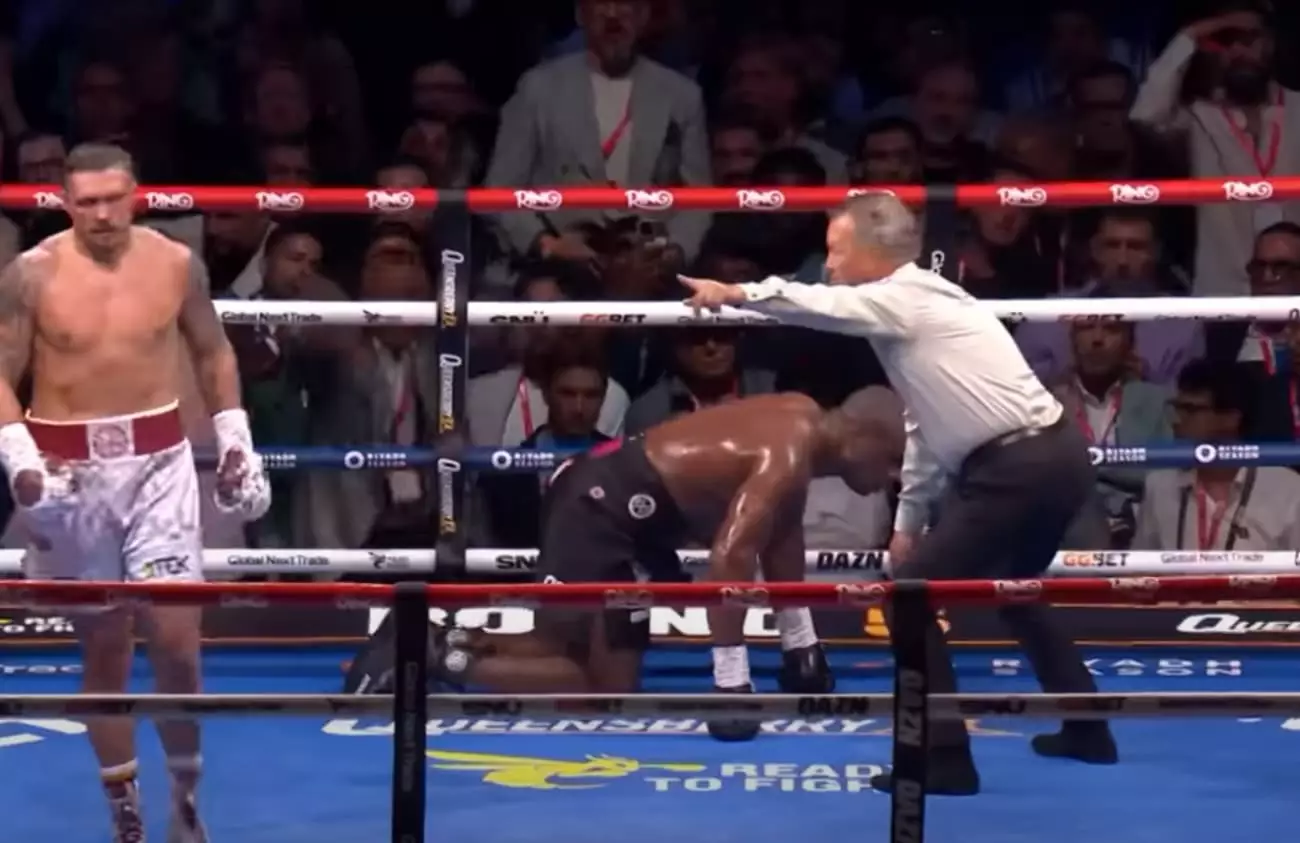In the high-stakes world of professional boxing, the narrative of perseverance versus capitulation is often oversimplified. Critics, fans, and fellow fighters tend to categorize bloodied fighters into two polarized groups: true warriors who endure and quitters who fold under pressure. Yet, this dichotomy neglects the nuance, the raw psychological and physical tolls that influence a fighter’s decision to continue or withdraw. The recent controversy surrounding Daniel Dubois’s defeat emphasizes how easy it is to assign blame from afar, especially when watching a brutal, high-pressure fight like the one against Oleksandr Usyk.
Dubois, having been knocked down twice in the fifth round, faced a moral and physical crossroad. Public opinion, led by figures such as Derek Chisora, painted him as a quitter—someone who “walked in the ring” with a predetermined failure. However, this narrative dismisses the brutal reality that fighters grapple with: the instinct to protect themselves when their body and mind register too much danger. It is vital to scrutinize whether labeling a fighter as a quitter is fair or an unfair simplification that undermines the complexities of combat sports.
The Power of Perception and Bias in Boxing Culture
Chisora’s staunch condemnation of Dubois reveals a broader cultural bias within boxing. The sport valorizes resilience, grit, and the willingness to stand toe-to-toe, which often shapes critics’ perceptions of what constitutes “spirit.” When a fighter is stopped or shows signs of vulnerability, some interpret it as a moral failure rather than a rational decision rooted in self-preservation.
Chisora’s critique also reflects a misunderstanding of strategic self-awareness. Dubois, arguably, may have recognized that continuing posed immense risks and that the fight was no longer within his control. His decision to exit the ring is, in many cases, a rational choice made for safety—a choice that requires courage and mental strength but is often overshadowed by the desire to glorify unwavering toughness.
Furthermore, boxing fans often project their idealized version of toughness onto fighters, expecting relentless aggression. When a fighter falls short of these expectations—when they do not fight back desperately or appear to quit—they are branded negatively. Such perceptions ignore the importance of experience, tactical retreat, and mental resilience in preventing severe injury and promoting longevity in the sport.
The Fallacy of “Doing Enough”
Critics like Chisora also appear to operate under the assumption that fighters “did not do enough” during their bouts. But this poses a dangerous standard: what exactly constitutes doing enough? Obvious signs of fatigue, compromised vision, or inability to defend oneself are physiological realities, not moral failings.
Dubois’s retreat might have been a tactical or instinctive response to the severity of Usyk’s shots. It is easy to judge from the sidelines, yet far more difficult to assess when one is in the heat of combat and facing overwhelming odds. The expectation that fighters must always engage until the referee stops or they cannot continue disregards the science of sports medicine and the ethical obligation to prevent life-altering injuries.
Remarkably, fighters like Dubois often push their bodies and minds to the limit. Recognizing when to stop is not surrender but survival—an act of strength that also demonstrates a fighter’s understanding of their limits. To berate them for this understanding as “quitting” is an oversimplification that undermines their courage and self-awareness.
Redefining Strength and Bravery in Boxing
The core issue with labeling fighters as quitters is that it distorts what true strength entails. Perseverance is undoubtedly noble, but God’s honest truth is that knowing when to step away can be equally courageous. Conflating the two leads to a toxic culture where vulnerability and self-care are stigmatized, discouraging fighters from prioritizing their health.
Kudos should go to fighters who exhibit exemplary mental fortitude by listening to their bodies and making tough decisions for their future. Victory in the ring is not solely about taking punishment and stubbornly resisting; it’s also about strategic self-preservation that prolongs fighters’ careers and well-being.
The boxing community must embrace a more nuanced perspective, one that recognizes that quitting — when done for the right reasons — is a testament to self-awareness, not weakness. The narrative should evolve from one that celebrates relentless brutality to one that appreciates the tactical, psychological, and emotional mastery that true boxing requires. After all, the greatest fighters are not those who never fall, but those who understand their physical and mental boundaries and act accordingly.
In the brutal beauty of boxing, strength is multifaceted. It encompasses resilience, discipline, intelligence, and above all, integrity. The question should not be whether a fighter quit or fought on, but whether they fought with honor—sometimes by knowing when to step back and live to fight another day.

